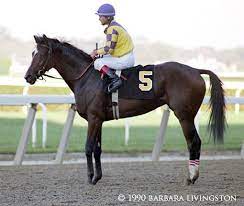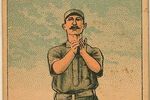Illinois Born “Boys of Summer” Series- Zach Monroe, Hank O’Day, George Moriarty and More
Continuing the series.
George Moriarty
George Joseph Moriarty was bon on July 7, 1884 in Chicago near the Union Stock Yards. He went on to become a major legue third baseman along with an umpire and manager in the major leagues. He made his debut on September 7, 1903 at the age of 19 for the Chicago Cubs. In his career, he played for four teams with 248 career stolen bases which included 11 of home plate. He played his last game with the White Sox on May 4, 1916.
He then turned to umpiring from 1917-1940 except in 1927-1928 he was the manager of the Tigers. He was one of the AL’s most highly regarded umpires in his era, working in the 1921, 1925, 1930, 1933 & 1935 World Series (as crew chief in 1930 & 1935), as well as the second All-Star Game in 1934.
On a memorable Memorial Day in 1932, Moriarty worked behind the plate for a Cleveland Indians home game against the White Sox. When several Chicago players took exception to his calls, he challenged them to settle the dispute under the stands of League Park after the game. Pitcher Milt Gaston took him on first but Moriarty knocked him flat, breaking his hand. Several White Sox, including manager Lew Fonseca and catcher and future AL umpire Charlie Berry, took him on in turn. The next day, AL president Will Harridge issued numerous fines and a 10-day suspension for Gaston.
John Romonosky
Born in Harrisburg, Illinois on July 7, 1929, John Romonosky became a right-handed pitcher for three seasons in Major League Baseball, appearing in 32 games for the 1953 St. Louis Cardinals and the 1958–59 Washington Senators. His minor league baseball career spanned 13 seasons between 1949 and 1961.
After his first recall from the minor leagues, Romonosky started two games for the Cardinals at the end of the 1953 campaign, earning no decisions. In fact, in his Major League debut against the Milwaukee Braves, the second game of a Sunday doubleheader at County Stadium, the game ended in a 3–3 tie after eight innings of play. Romonosky allowed three earned runs and seven hits in six innings, with two bases on balls and three strikeouts.
Sent back to the minors by St. Louis for the 1954 season, Romonosky didn’t return to the majors until July 1958 as a member of the Senators. He started five games during that month, but won only one game (losing the other four) and he worked out of the bullpen for the remainder of the 1958 campaign, appearing in 18 total MLB games. He began the next season with Washington, and worked in 12 more contests, two as a starter. He posted a career-best 3.29 earned run average that season, but did not pitch in a big-league game after July 27 and spent part of the season with the Double-A Chattanooga Lookouts. However, in his final Major League game in September 1959, he pinch-ran for Senators’ slugger Roy Sievers in the eighth inning and scored the winning run in a 5–4 win over the Cleveland Indians at Griffith Stadium. In his career, he yielded 97 hits and 51 bases on balls in 101⅓ major league innings, with 63 strikeouts.
Salty Parker
Francis James “Salty” Parker was born in East St. Louis, Illinois on July 8, 1912. Parker played in the Major Leagues for one month from August 13, 1936 through September 16, 1936. He appeared in 11 games, 7 at shortstop, for the Detroit Tigers, collecting seven hits and four RBIs for a .280 batting average and a .333 on-base percentage. Parker was sent to the Tigers on December 2, 1936 in a trade with Indianapolis American Association that also brought Dizzy Trout to the Tigers. Though Parker only played a month, Trout was a Major League pitcher for years, and eventually the Tigers’ ace.
After a lengthy minor league managerial career, including a stint managing Leones de Escogido in the Dominican Republic (1957–59), Parker coached for the San Francisco Giants (1958–61), Cleveland Indians (1962), Los Angeles/California Angels (1964–66; 1973–74), New York Mets (1967) and Houston Astros (1968–72) and served brief stints as manager of the Mets, where he had a 4–7 record in 11 games in 1967, and the Astros, where he had a 1–0 record in 1 game in 1972.[1] After his MLB coaching career, Parker scouted for the Angels and remained active in Houston-area baseball, coaching in the Karl Young League for many years.
Zach Monroe
Zachary Charles Monroe was born on July 8, 1931 in Peoria, Illinois. He was a pitcher over parts of 2 seasons in Major League Baseball (1958–59) with the New York Yankees. He made his debut on June 27, 1958 for the Yankees where he pitched 3.1 innings and allowed no earned runs with four walks and three strikeouts. BOXSCORE He was a member of the 1958 World Series champion Yankees. An alumnus of Bradley University, for his career he compiled an 4–2 record with a 3.38 earned run average and 19 strikeouts in 24 appearance
Hank O’Day (Chicago)
Henry M. O’Day (July 8, 1859[2] – July 2, 1935), nicknamed “The Reverend”, was an American right-handed pitcher and later an umpire and manager in Major League Baseball. After a seven-year major league playing career, he worked as a National League (NL) umpire for 30 seasons between 1895 and 1927.
O’Day umpired in ten World Series – second only to Bill Klem’s total of 18 – including five of the first seven played, and was behind the plate for the first modern World Series game in 1903. Retiring at age 68 years, 2 months, he remains the oldest umpire in major league history – a fact which was not known until recently, as he routinely shaved five to seven years from his true age throughout his career. His 3,986 total games as an umpire ranked third in major league history when he retired, and his 2,710 games as the plate umpire still rank second in major league history to Klem’s total of 3,544. He is largely known for his controversial decision in a pivotal 1908 game, a ruling that still causes debate today. O’Day interrupted his umpiring career twice for single seasons as a manager, leading the Cincinnati Reds in 1912 and the Chicago Cubs in 1914. He remains the only person ever to serve full seasons in the NL as a player, manager and umpire. O’Day was inducted into the National Baseball Hall of Fame in July 2013.
On July 8, 1901, his 42nd birthday, the fans are not happy with him as umpire because of some calls he makes. In the 8th inning, the Cardinals are leading 4-3, when the umpire calls two Brooklyn runners safe on the same play when both appear out. One of the runners ran 5-10 feet into the infield to avoid a tag on a weak grounder to first base. The second runner was clearly tagged out as he tries to advance to third base. The Cardinals argue vehemently. The fans toss bottles and jump from the bleachers to get their hands on the umpire. When order is restored, O’Day had a cut lip and both runners later score. The Cardinals lose 6-4 in the game and police had to escort the umpire to safety. It was the umpire’s birthday.




